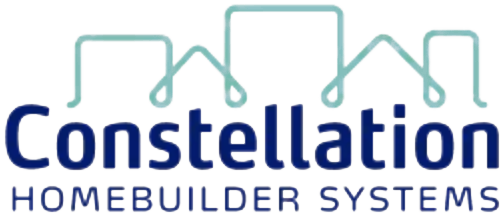Technology
Creating Measurable Value By Cutting Impact, Reducing Waste
"What does Net Zero really mean? We're still trying to figure out. As an industry no one really knows, and that's why I struggle with this term Net Zero. I love the idea of low carbon." -- Christian Rinomato,Manager of Special Projects at Country Homes

Subtraction, says author and architecture professor Leidy Klotz, is an all too rarely-tapped value maker.
"Less is more," Ludwig Mies van der Rohe's famed quote, meshes both looking-glass balance and unequal values in astonishing succinctness; but it is easier said than done in-real-life. Equally challenging in an applied sense is author, designer, tech guru John Maeda's characterization of something everybody relates to and values, simplicity:
Simplicity is about subtracting the obvious and adding the meaningful."
Adding the meaningful tends to get most of the strategic and operational focus. Klotz's book points out many ways we overlook "subtracting the obvious" and why.
And how does a discussion of taking-away to elevate value fit as a relevant access point into a market that keeps pushing both prices and borrowing costs higher?
Last week, we explored value engineering re-tooled in an environment that requires both builders and homebuyers to come out on the winning end of the new-home design, construction, price, and value equation: "faster, cheaper, better."
"Adding the meaningful" via subtraction across a total cost and value of homeownership can serve as a business future-proofing strategy, especially when higher-for-longer rates and sticky-high prices and a non-stop barrage of natural disasters – 23-billion-dollar climate and weather disasters in the first eight months of 2023 – serve as a constant reminder of how valuable subtraction can be to some homebuyers.
- eliminating waste in materials and reducing embedded carbon adds to a cradle-to-grave total lifetime value of buildings
- building better structures and systems that perform at a higher level and reduce energy use and other operational costs add to a customer's direct experience of value.
Adding value through subtraction is at the core of a conversation – The Big Picture Series: Sustainable Homebuilding – we'll have this Thursday, Oct. 12th, live at 2 pm ET, presented by Constellation HomeBuilder Systems.
Sheida Shahi, Co-Founder & CEO of Adaptis, an AI-powered company that helps construction companies decarbonize for a sustainable future, and Christian Rinomato, the Manager of Special Projects at Country Homes, who has led critical projects to develop low carbon communities, will join in a deep-dive on topics like these:
- An overview on circular construction and how it benefits builders and beyond
- Strategies to reduce carbon emissions in the construction process
- Best practices for developing low carbon homes & communities
- Buyer expectations for sustainability in construction and in their homes
- Tips to take on sustainability initiatives while keeping an eye on the bottom line
Again, click here to participate with us on Thursday, Oct. 12.
Underlying the conversation, we'll look at importance of strong, clean, real-time data in everything from tracking costs and revenues in an ERP, to leveraging big data that can help a builder incorporate sustainability as a customer value proposition, while of course, making sure that there's a bottom line focus. Here's just a glimpse of how we'll get at this idea of reducing and subtracting to drive greater value to both you as operators and to your consumers at a moment value could not mean any more than it does now.
Christian Rinomato, Country Homes
For more than a decade, at Country Homes, we've worked on discovery-home projects, trying to find that low hanging fruit and improve our our standard of building, basically from code all the way to where now our standard is 20% better than code. From our perspective, it's constantly trying to improve incrementally -- because, you know, getting to zero is not something that happens overnight. What does Net Zero really mean? We're still trying to figure out, I think as an industry we no one really knows, and that's why I struggle with this term Net Zero. I love the idea of low carbon. Just keep getting lower and lower, both embodied and operational when it comes to taking that into account. That's pretty much it. We're a builder that just wants to do better, and wants to help share that or share our findings with the industry."
Sheida Shahi, Co-Founder & CEO of Adaptis
At Adeptis, we are a decision-support platform for decarbonisation and circularity planning. We help building owners make decisions on existing building retrofits and high-performing new construction projects when it comes to decarbonization. We work with them to reduce their energy and Greenhouse Gas emissions as well as circularity. What we mean by that is optimizing for reuse and recycling of materials in an existing building as part of demolition and retrofits and a new construction and designing for circularity, so end-of-life extension and end-of-life optimization of material reuse and recycling. Our value prop is that we improve the return on investment for building owners. Our average is about 30% improved ROI for decarbonization and circularity scopes. We can do this because we're able to run a large number of simulations in a short amount of time, which gives us a larger search space to ensure that high quality solutions are provided with the lowest cost that is possible."
Christian Rinomato, Country Homes
As of right now, what we learned from this technology from five years ago is an all-electric home, using an air source heat pump, the amount of energy that is required to power both the air source heat pump and the electric hot water tank is pretty substantial. So from our perspective as a builder, we're being mindful that the pathway to electrification is ongoing. What we have done though, is we're going to move our next subdivision to 100% air source heat pumps. That's our way of trying to make another incremental change on the way to electrification. We'll still have our gas powered hot water tanks, but then we'll eliminate gas powered appliances. So, not even having the option to put in a gas line for our for our townhome, from our perspective, helps eliminate that operational carbon. From a buyer's perspective, you're ultimately buying into a sustainable community, so to speak. We're going to be putting solar panels on our next community on every home, which is exciting. So again, learning on the low hanging fruit and what's doable amount to the incremental changes that will allow us to kind of improve ourselves."
Constellation provides fully-integrated or standalone software solutions expertly engineered to manage the complete ecosystem of a homebuilder’s business functions and growth.
MORE IN Technology
Lennar Taps Into Geothermal To Power New Colorado Homes
A major homebuilder's bet on geothermal heating and cooling for over 1,500 new Colorado homes could pave the way for mainstream adoption as buyers increasingly seek sustainable, energy-saving features.
AI Crushes Missing-Middle Time And Cost Curves Toward Affordability
Developing multifamily rental and for-sale properties takes time — sometimes years -- depending on a labyrinth of zoning rules and the whims of local jurisdictions.
Brandon Elliott’s Next Big Thing: An Uber-Style Building Trades Platform
After selling Elliott Homes to Meritage, the Gulfport, Miss.-based entrepreneur sets his sights on transforming trades with a logistics-tech startup that aims to make construction faster, smarter, and more affordable—starting with siding.


